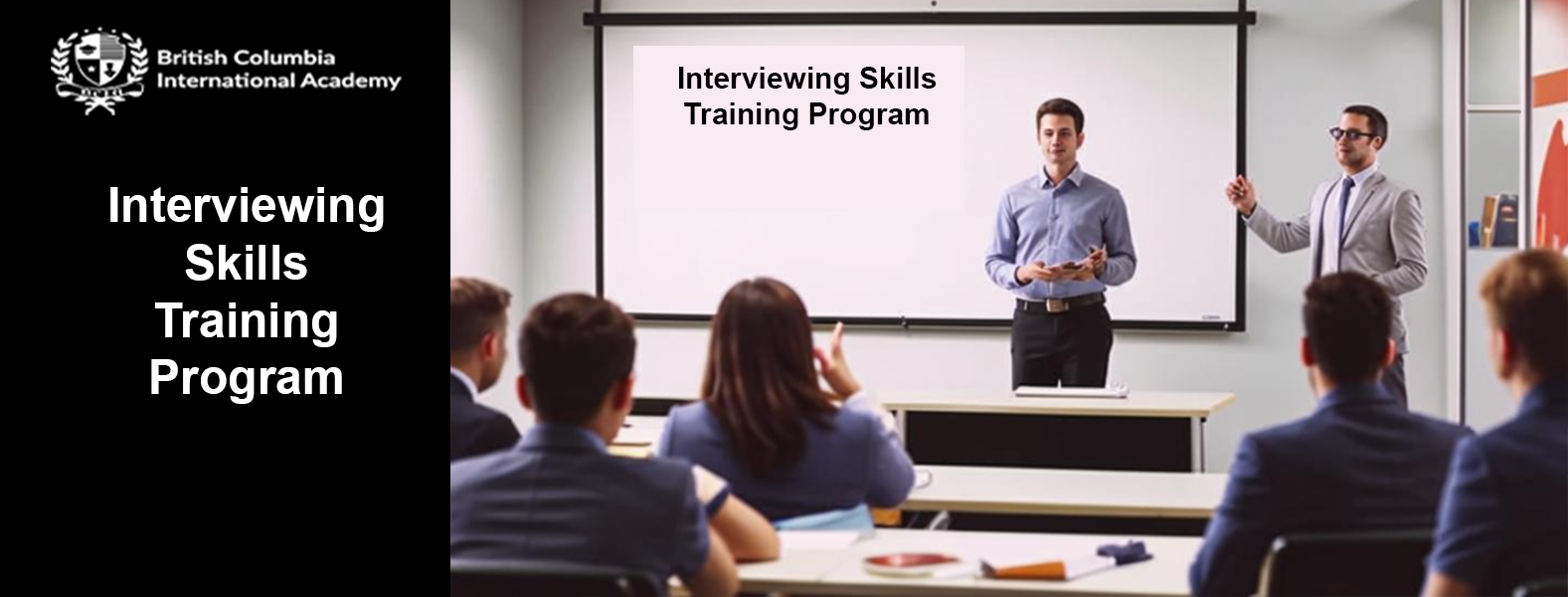
At BCIA Training Centre, our Interviewing Skills course equips you with the essential skills to excel in conducting interviews, ensuring that you make informed hiring decisions. This comprehensive training is designed to enhance your ability to assess candidates effectively, fostering a productive and efficient interview process. Learn the art of crafting the right questions, interpreting responses, and understanding candidate suitability for specific roles.
The course delves into the best practices of interview techniques, covering topics such as behavioral interviewing, reducing biases, and creating a positive candidate experience. With insights from highly experienced trainers, you will gain a deeper understanding of effective communication, active listening, and decision-making. By mastering these skills, you will be prepared to make confident, unbiased decisions and ensure that your organization hires the best talent.
The benefits of studying this course extend beyond just improving interview performance. It boosts your ability to reduce bias, manage stress during interviews, and foster a fair and structured process that aligns with best practices. This also helps in creating a positive interview experience for candidates, which reflects well on the company and enhances its reputation in the job market.
Job opportunities for those who master interviewing skills are numerous and varied, ranging from HR professionals, recruiters, and talent acquisition specialists to team leaders and managers involved in hiring processes. In addition, this skillset is vital in fostering high-performing teams, ensuring that organizations make the right hires who will thrive in the workplace, thereby contributing to long-term organizational success.
Interviewing Skills Course Syllabus
Introduction to Interviewing
Purpose of interviews in recruitment
Types of interviews (structured, unstructured, behavioral)
Key competencies required for interviewers
The importance of interview preparation
Understanding the candidate's perspective
Preparing for the Interview
Defining the job requirements
Creating effective job descriptions
Developing a structured interview plan
Researching candidates beforehand
Setting expectations for the interview process
Types of Interviews
Structured vs. unstructured interviews
Panel interviews and how to manage them
Telephone and video interviews
Group interviews and assessment centers
Situational and behavioral interviews
Effective Questioning Techniques
Open-ended vs. closed-ended questions
Behavioral-based interview questions
Situational and hypothetical questions
Probing and follow-up questions
Avoiding biased or discriminatory questions
Assessing Candidate Responses
Listening skills for interviewers
Analyzing verbal and non-verbal cues
Identifying red flags in responses
Using the STAR method to evaluate answers
Balancing intuition and structured analysis
Building Rapport with Candidates
The importance of rapport-building
Creating a welcoming interview environment
Making candidates feel comfortable
Active listening and its impact
Establishing trust through body language
Interviewing for Specific Job Roles
Tailoring interviews to the role’s requirements
Key competencies for different job functions
Technical vs. behavioral questions
Understanding cultural fit for the organization
Evaluating soft skills and technical expertise
Avoiding Common Interviewing Biases
Understanding different types of biases
Strategies to minimize bias in interviews
The role of unconscious bias in decision-making
How to ensure fairness and equity in hiring
Overcoming the halo and horns effects
Behavioral Interviewing Techniques
The STAR method (Situation, Task, Action, Result)
Framing questions for behavioral responses
Interpreting candidate’s past behaviors
Identifying success patterns and predicting future behavior
Evaluating problem-solving and decision-making skills
Effective Body Language
Understanding non-verbal communication
Recognizing body language cues from candidates
Managing your own body language
Interpreting facial expressions, posture, and gestures
The impact of eye contact and tone of voice
Dealing with Difficult Candidates
Managing nervousness and anxiety in candidates
Handling aggressive or defensive behavior
Dealing with silence and uncomfortable pauses
Managing candidates who dominate the conversation
Keeping the interview on track
Legal and Ethical Considerations in Interviewing
Understanding legal requirements (anti-discrimination laws)
Ethical interviewing practices
Confidentiality and privacy during interviews
The right questions and the wrong questions
Avoiding personal bias and discrimination
Creating a Positive Candidate Experience
Building a welcoming environment for candidates
Communicating clearly and transparently
Giving constructive feedback to candidates
Creating an engaging interview atmosphere
The role of respect and professionalism
Interviewing Across Cultures
Understanding cultural differences in communication
Adapting your interview style for diverse candidates
Avoiding cultural bias
Respecting cultural norms and practices
The importance of inclusivity in interviews
Post-Interview Evaluation
Documenting interview outcomes
Rating candidate responses and qualifications
Using scoring rubrics and evaluation sheets
Collaboration with other interviewers for final decisions
Comparing candidates objectively
Decision-Making in Interviews
Weighing the pros and cons of each candidate
Aligning candidate suitability with job requirements
Making decisions based on evidence, not gut feeling
Identifying the best candidate for long-term success
Discussing interview results with hiring teams
Building an Interviewer’s Toolkit
Developing a list of essential interview questions
Creating templates for evaluation forms
Building a personal interviewing checklist
Reviewing feedback to improve interviewing skills
Regularly updating your interviewing techniques
Telephone and Video Interviewing Skills
Conducting effective remote interviews
Overcoming challenges of virtual communication
Maintaining professionalism over the phone/video
Building rapport in remote settings
Managing technical issues during video interviews
Advanced Interviewing Strategies
Using psychological principles in interviews
Interviewing for leadership potential
Dealing with counter-offers and negotiation tactics
Assessing emotional intelligence and resilience
Utilizing assessment tools in interviews (e.g., personality tests)
Review and Continuous Improvement
Gathering feedback from candidates and interviewers
Self-assessment and reflection after each interview
Evaluating the success of your interview process
Enhancing your interviewing skills over time
Attending workshops and training for continuous learning
This syllabus will provide you with a thorough grounding in all aspects of interviewing, enabling you to carry out effective, fair, and unbiased interviews. By the end of this course, you will be well-prepared to assess candidates and make informed hiring decisions that are aligned with organizational needs.
BCIA is Proudly Owned by British Columbia International Academy : UAE